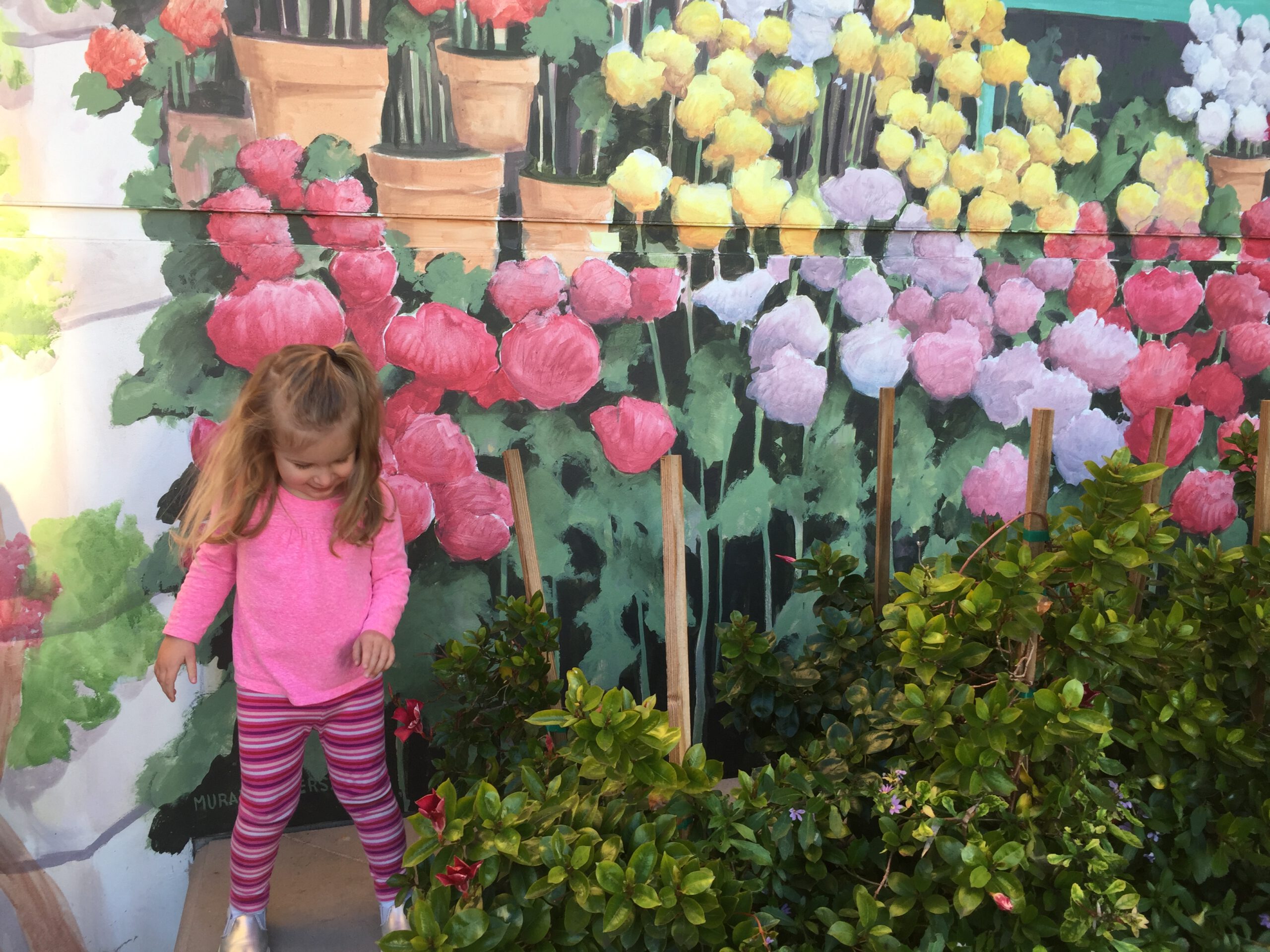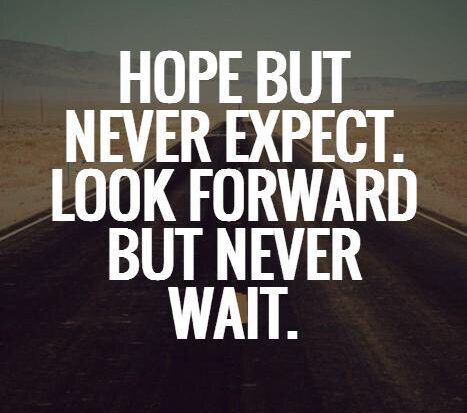And just like that, she’s three years old.
My baby no longer holds a baby’s place in the world. She can run, skip, jump, somersault, tumble, bike ride and kick a soccer ball.
She uses the big girl potty and big girl swing and wears big girl panties.
She can speak her mind, declare her intentions, problem solve, use her manners, not use her manners, understand consequences and have her own opinions.
She fights for her independence in one moment, while clinging to my body for “one more hug” in the next moment.
I see her growing and learning and feel her starting to take those first steps towards her life separate from me. I want to hold her close with every part of me, while also knowing I have to let her take those tentative steps if she’s going to claim her space in this world.
And what a space it’s going to be.
While I didn’t think my love for her could actually grow stronger, it has and it does every second.
The days aren’t always easy, but they are always awe-inspiring and magical, seeing this amazing girl we brought into this world grow and learn and smile and laugh.
I’ve come to love these annual lesson journals I write on my baby’s birthdays (here is the first and second). There is never enough room to put down what I’ve learned in the previous year and what I want to pass on to other mama’s in this stage of motherhood.
So I’ll write from the heart and hope it helps other moms in their journeys as well.
10 Things I Learned From Having a Two Year Old
1. Don’t take anything personally
“Mommy go away.” “Mommy please move your hand.” “Mommy, I don’t like you.” “Mommy can I see Daddy instead?” “Mommy you smell.”
These are only a few of the phrases I’ve heard this year. I’ll be honest that the first time I heard them, I felt a little punch to my gut. Until I remembered that she was less than three years old and didn’t yet know the implication of what she was saying.
This can be a tough age for our kids. They are old enough to physically do things, but their emotions and communication skills haven’t caught up yet. They know they feel something and want to express it, but they have no idea how. So crazy words and body flailing and yelling ensue.
They don’t mean what they say. They need us to be strong and calm and non-reactive during these times, so they feel safe and loved. Just brush it off and know you are the only sane one in these situations. Don’t hold a grudge and don’t get upset. Wait it out and I promise it will pass.
2. Have a conversation
As parents, we are on the front line of helping our children develop confidence and security. How we talk with them has a direct impact on how they will talk to their peers, caregivers and teachers. Don’t think for a second that they don’t understand what we say, because they pick up on everything!
I have full blown conversations with our daughter about the solar system, ocean animals, feelings and family decisions. We also talk extensively about the Itsy Bitsy Spider, stuffed animal birthday parties and whether the Easter Bunny can come into the house without ringing the doorbell.
I don’t talk at her, over her or about her. I talk TO her. I look her in the eye, listen when she tells me something and answer questions when she asks them. When I can’t possibly answer “why” anymore, I tell her we will talk about it later and I ask a different question. Don’t discount your child’s need to just talk to you. If we don’t let them talk now, they are less likely to talk in a few years when we desperately want them to.
3. Let yourself be a kid
I have loved seeing my daughter dive into imaginary play this year! It is so fun to see her make up stories with her toys, read books to her stuffed animals and act out songs we’ve listened to.
While she is occasionally content to do this by herself, more than not she wants one of us to join her.
I truly believe that play is the best way for kids to learn at this age. Sometimes we just need to put down the dirty dishes and shut off our phones and play! Put a silly hat on, lay on the floor, repeat the same story 97 times or bring out the plyboard to act as a ramp for your matchbox cars. These are the moments our kids need us. The dishes can wait.
4. Teach manners and be consistent
Our daughter used a lot of sign language when she was younger, and the most common signs we repeated were “please” and “thank you”.
As soon as she could talk, we taught her the proper words to use and when to use them when showing good manners. It can sometimes feel easier to just skip the whole please and thank you thing, but don’t. Be consistent and make your children use these words, both with you and in public. Our daughter needs reminding sometimes, but I’m continually in awe of her ability to say “thank you” on her own when she gets something she has asked for. It’s a habit we taught early and she just doesn’t know NOT to do it. Those words can have a powerful effect on others as she gets older.
5. Find your mama tribe
I have some great friends who have kids of all ages. They have all been invaluable guides to me as I’m figuring out this mama thing.
This year, though, I noticed I needed someone who was right in the trenches with me. Someone who was going through the exact same stage or who had recently been there, and could tell me if I was crazy or if crying in the closet by myself was normal with a 30 month old.
I have two amazing women who I text regularly saying, “She just crawled out of her crib for the first time. What do I do?” “She just hit me. Tell me this is normal please.” “When does this phase end?” They have kids 6 months and 12 months older than my daughter, so they have recent memory about everything I’m going through. More than offering advice, they have helped me take a sigh of relief when I’ve realized we aren’t the only family going through a week of skipped naps.
6. Regression is normal
One of my biggest mommy mess-ups happened this year. Our daughter had been doing great with potty training for a while and hadn’t worn diapers during the day in 6 months. Then, suddenly, she refused to use the potty. Not only that, but she peed on the carpet. Numerous times. Out of the blue. On purpose.
I made a big deal about it and talked to her about why she was doing that. I repeated it over and over again and even threatened to take away a toy if she did it again.
Then I finally decided to Google it and read five articles in a row that said regression is normal and NOT to make a big deal about it.
Oops.
She passed that phase after two weeks and is awesome about the potty again. I learned a huge lesson and discovered regression can be completely normal when it comes to certain learned actions. Don’t ever shame your child or make them feel bad. Just accept it and move on and know you aren’t doing anything wrong if it happens. (Of course if you are worried about your child or see regression in developmental areas, call your doctor.)
7. Focus on your partner
Remember that person you had a child with? The one you sleep next to at night and say hi to occasionally during the day?
Yeah, that one.
The first two years are full of diapers and midnight feedings and sleeplessness and confusion and figuring everything out. It’s completely normal to take some attention off your partner, as you are both just trying to survive.
It’s now time to turn that around again.
Talk about something other than your kid. Do an activity together that you used to do before you ever got pregnant. Find a sitter, even for just an afternoon coffee or morning run together. Listen to your partner without focusing one ear on the monitor or the pot boiling on the stove. Love on them. Do something special for them. Dress up when you don’t want to and watch a show you don’t like, just because it makes them happy. Hug. Kiss. Reconnect.
8. Find your meltdown strategy
We got three quarters of the way through last year without any meltdown, tantrum or crazies. I thought ours would be the one kid in the world who never experienced that.
Riiiggghhht.
I can’t tell you exactly how to deal with this, as it is totally individual to each child, family and situation. We have been lucky that we’ve never had to deal with it in public. It has only happened at home, which makes it a little easier I think.
Just a little.
We have tried many things that haven’t worked. For example, taking away toys and using time outs don’t work for us, as they just don’t motivate our child. The only thing that works for me and my baby in the heat of a meltdown is waiting it out and being a consistent, loving presence for her. I always take her to a quiet place in our house – usually her room – and sit with her. I rock her or just hold her close, letting her cry and scream and get out all of those bottled emotions.
If she’s hitting or kicking and I can’t stop it, I’ll put her in her crib and sit in the rocker next to her. I say “I can’t let you hit me. I understand you are upset and I’ll sit here until you feel better.” I just wait. And wait. And wait.
It always passes eventually, and then I’m there to hold her and love on her and answer her inevitable question of, “Mommy, why was I sad?”
Janet Lansbury of Elevating Childcare has helped me a lot during these times. She says that it’s a good sign when our kids have a meltdown. It means they feel safe expressing their feelings in front of us, which is what we want. I remember this when I’m sitting in that rocker, wishing for it to be over. Whatever strategy works for you, stick with it and offer it with love.

9. Some screen time is ok
Between the ages of one and two, we watched the occasional Baby Einstein or other learning show with our daughter. I was really particular about what we watched, and I do think they helped with her sign language, word development and learning. But we never watched movies or used apps, and limited the screen time as much as possible.
About five months ago we finally sat down as a family on a rainy Sunday and watched 45 minutes of “Cars” together.
It was amazing.
We were snuggled under a blanket and laughing together. She fell in love with Lightning McQueen and asked for him and Mater for Christmas.
We now watch small portions of movies together on occasional Sunday mornings and I love it. I’m not going to let myself worry about the implications on her development or using it as a baby-sitter. I’m just going to enjoy cuddling with my babe and my husband, as I know this time is fleeting. I’m going to soak it up as much as I can.
10. Rise above
There were times this past year I doubted myself as a mom more than I ever had. There were crying jags from my baby in the middle of a meltdown that I couldn’t stop. There were times I was told “don’t touch me!” when all I wanted was to stroke her hair and hold her. There were times she said, “Mommy I don’t need help” and I knew that she really didn’t, because she is beginning her walk away from me.
Our kids need us to be stronger than they are. They need us to be the one sure thing in a crazy world that changes all the time. They need to know we have control over ourselves when their emotions seem uncontrollable to them. They need to know that their actions will never effect our ability to take care of them.
They need to know we are their Mama Bear and nothing will change that.
Whenever I get down or sad or hurt or hormonal, I remember that my daughter needs me to rise above that.
I am strong. I am resilient. I am a parent. I am a MOM.





